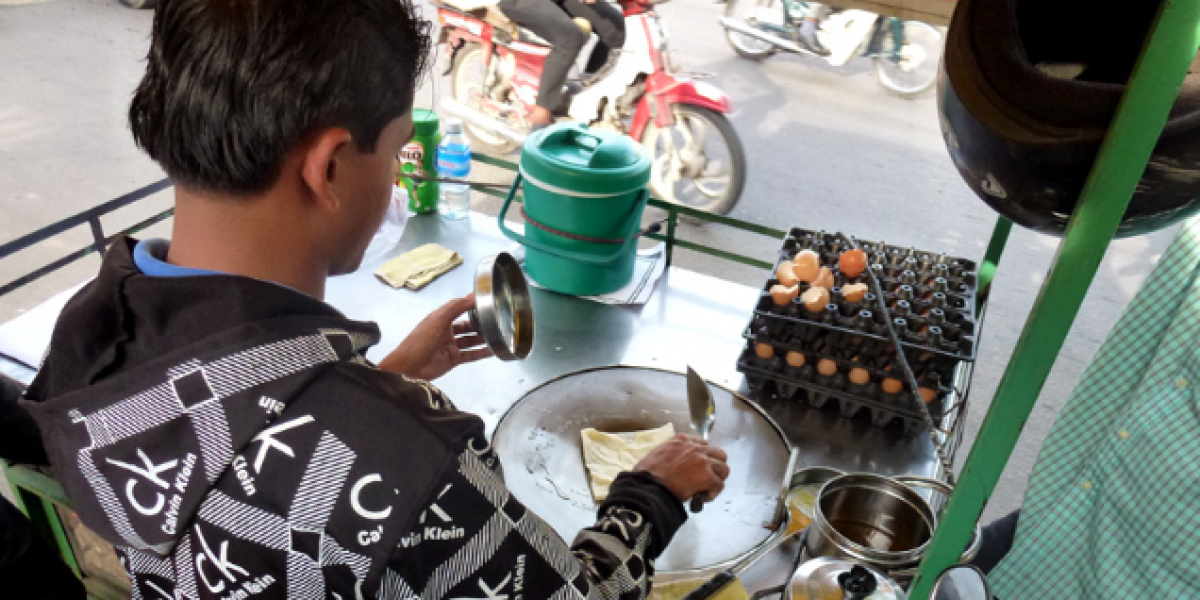Praying with Refugees in Cambodia
01 March 2012|Denise Coghlan RSM, JRS Cambodia Director and Lisa Cahill PhD, Theology Faculty, Boston College

(Phnom Penh) March 1, 2012 — Before Mohammed fled Burma, he was often stopped by the authorities on his way to school and sent to work in military camps. There he was made to cook, clean and carry heavy building materials, and he was punished when his captors were unhappy with his work.
Persecuted by the authorities for being Muslim, one night Mohammed was offered an opportunity to escape to Thailand with his uncle. Around midnight, 29 people – all ethnic Rohingya – left by boat on what would be an 18-day journey. After three days, they ran out of drinking water and were forced to drink seawater, making them sick.
Shortly after they arrived in Thailand they were arrested and sent to the Thai border city of Mae Sot where Mohammed would spend six months in immigration detention. Terrified of being sent back to Burma, beaten and left to die as his father was, Mohammed fled again. With his little remaining money he crossed into Cambodia and applied for asylum.
Mohammed is typical of the many Muslim Rohingya refugees forced to flee their homes in western Burma. Forced labor, land confiscation, and restrictions on their freedom of movement and religious expression are common features of their lives. Excluded from accessing public health and education services and prevented from taking up employment, they are forced to live in destitution.
In late 2009, Rohingyas started arriving in Cambodia; this more or less coincided with the implementation of new refugee procedures, transferring responsibility for status determination from the UN refugee agency to the Cambodian government.
The Cambodian government has not yet resolved any applications from Rohingya asylum seekers. Regrettably, the new framework does not afford any formal rights to asylum seekers, leaving them in legal limbo, and at the mercy of government officials turning a blind eye to their employment in the informal labor market.
With the help of Jesuit Refugee Service, many Rohingya have started their own businesses selling roti bread on mobile carts; but it is a daily struggle as profits barely meet the most rudimentary shelter and food costs. As the Rohingya await the outcome of their asylum applications, JRS workers seek to help them deal with the day-to-day hardships. Perhaps the hardest part is knowing that even if their applications are accepted, their daily lives will not substantially change.
Trying to manage expectations is a challenge, as is encouraging them to make friends, and learn the Khmer language and culture. There is little hope they will be resettled to a third, wealthier, country. They face the daunting prospect of integration into Cambodian society, one that struggles, and often fails, to meet the needs of its own nationals.
Mohammed’s story shows why the JRS mission today goes beyond meeting individual needs. The JRS mission includes multilevel forms of accompaniment, service, and advocacy. JRS workers support legal appeals for the Rohingya within Cambodia. As an international organization with political visibility, JRS also exerts moral pressure on governments, brings attention to endangered human rights, and has a voice at the table of regional and global policy-setting.
Modern Catholic social teaching has repeatedly used the image of the ‘human family’ or ‘the whole human family’ to expand our attachments beyond people who are ‘like us’ or ‘close to us’. The human family embraces those who are far away or different: Muslim or Christian, African or European, Asian or American, poor or privileged, secure at home or on the run.


